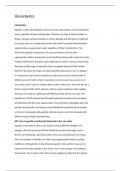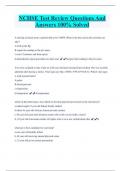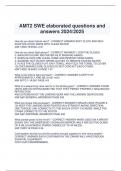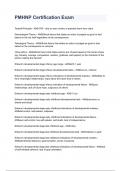Essay
Health and Social Care Unit 2- Alice Learning Aim A
- Institution
- PEARSON (PEARSON)
This is an in depth piece of coursework of Leaning Aim A for the case study of 'Alice', Unit 2 'Working in Health and Social Care.' This will assist you in what content you need to include in your own coursework, as well as showing the layout to answer your questions. This coursework achieve an A*,...
[Show more]






